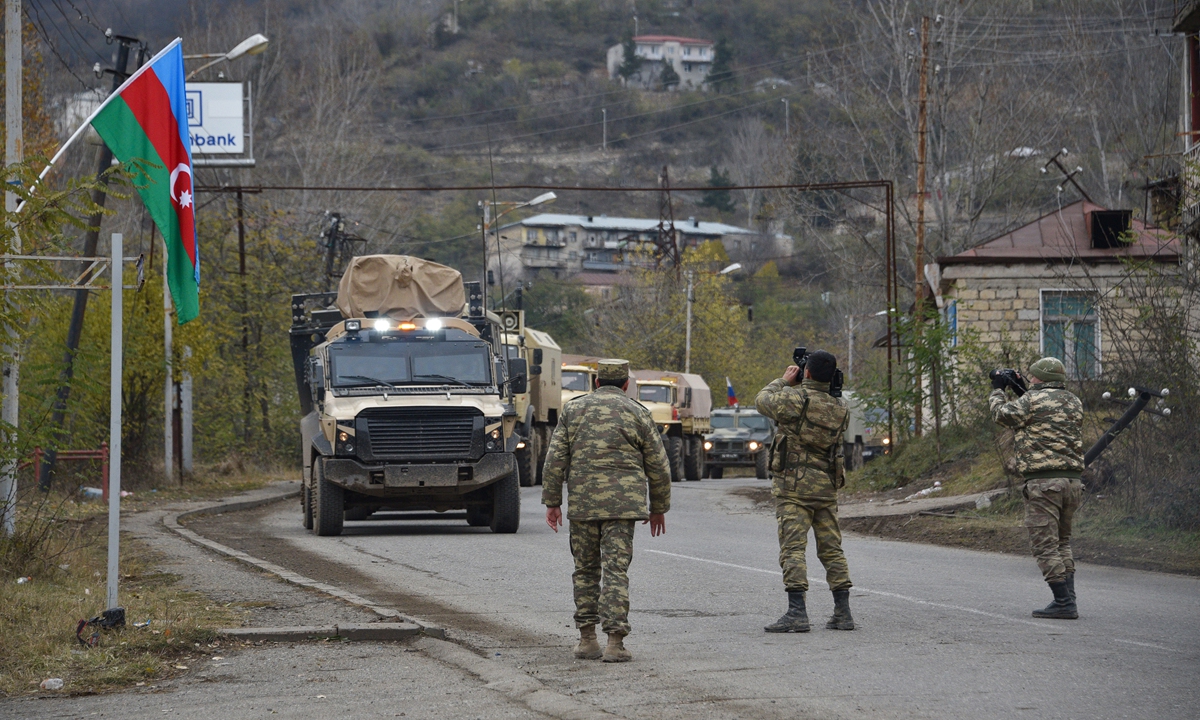
Azerbaijani soldiers film Azeri military trucks moving through the town of Lachin on Tuesday. Azerbaijani soldiers and military trucks rolled into the final district given up by Armenia in a peace deal that ended weeks of fighting over the disputed Nagorno-Karabakh region. Photo: AFP
The leaders of arch-foes Armenia and Azerbaijan agreed in a Brussels meeting Sunday to "advance discussions" on a peace treaty over a troubled region that saw a war break out in 2020, the European Council's president said.The Nagorno-Karabakh region, situated in Muslim-majority Azerbaijan with mostly Christian Armenian residents, is the focus of a decades-long territorial dispute between the two ex-Soviet Caucasus neighbors.
In 2020 the simmering tensions escalated into all-out war, claiming more than 6,500 lives in six weeks before a Russian-brokered ceasefire saw Armenia cede swathes of territory it had controlled for decades.
Demonstrations have erupted in the Armenian capital Yerevan in recent weeks to protest President Nikol Pashinyan's handling of the conflict, as he embarked in April on peace talks with Azerbaijani President Ilham Aliyev.
The two leaders had a "frank and productive" EU-mediated discussion in Brussels, European Council President Charles Michel said Sunday.
"The leaders agreed to advance discussions on the future peace treaty governing inter-state relations between Armenia and Azerbaijan," Michel said in a statement.
The process will begin in "the coming weeks," he said, adding that he had stressed to the two leaders that "it was necessary that the rights and security of the ethnic Armenian population in Karabakh be addressed."
There will also be a "meeting of the Border Commissions" in the coming days, which will address issues of border delimitation and "how best to ensure a stable situation."
Pashinyan spoke about "preparations for the negotiation process on normalization of relations between the two countries, humanitarian issues, as well as the settlement of the Nagorno Karabakh conflict," said a statement from his office.
AFP
